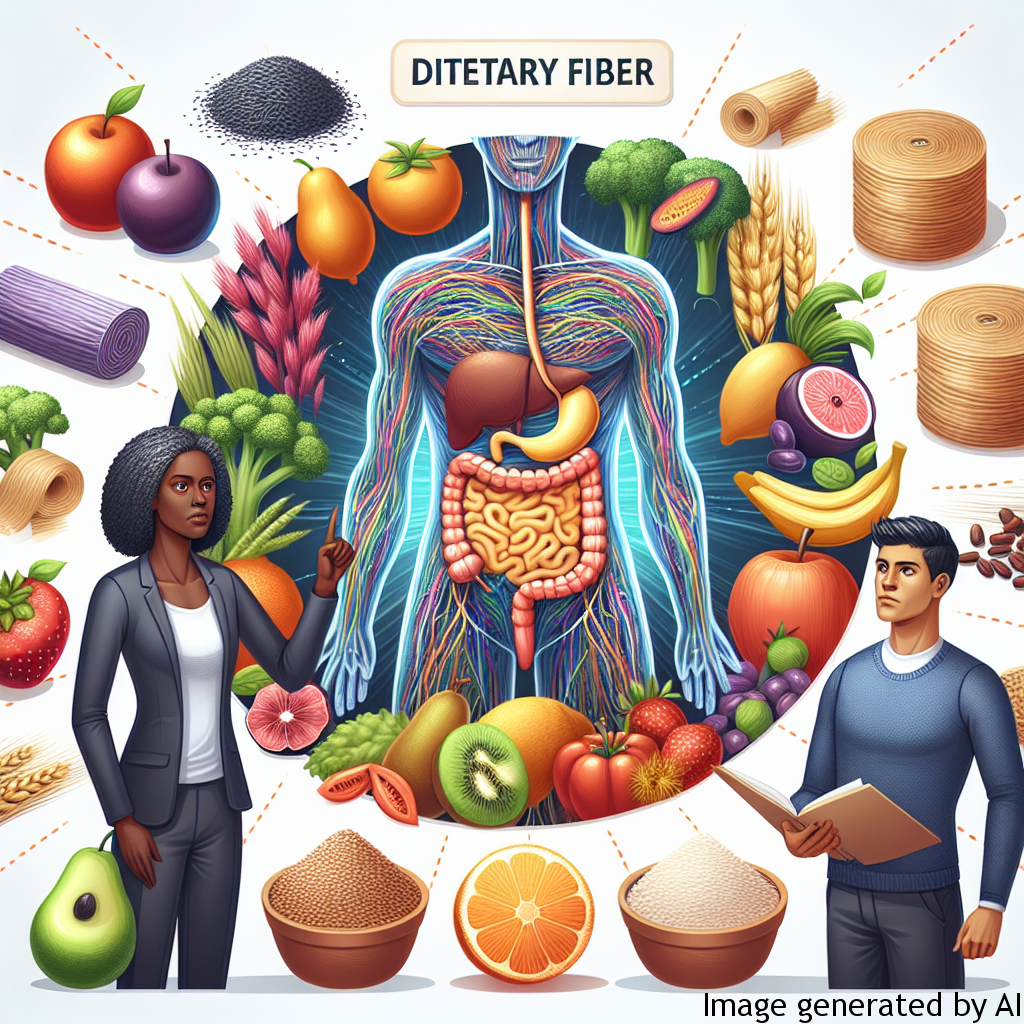Introduction
Dietary fiber plays a crucial role in maintaining a healthy diet and overall wellbeing. They are referred to as carbohydrate-based nutrients that cannot be digested by the human body. Despite this, dietary fibers perform significant functions that promote digestive health, lower disease risk, and contribute to weight management. This article explores the importance of dietary fiber in the diet, focusing on its benefits and significance in daily nutritional requirements.
Description of Dietary Fiber and its impact on Physical Health
Dietary fiber, often called roughage or bulk, includes the parts of plant foods your body can’t digest or absorb. It passes through your stomach, small intestine, and colon mostly intact. This phenomenon is significant because it triggers useful processes throughout the digestive system.
Types of Dietary Fiber
There are two categories of dietary fiber; soluble and insoluble. Soluble fiber dissolves in water, forming a gel-like material that aids in reducing blood cholesterol and glucose levels. It is found in oats, peas, beans, apples, citrus fruits, carrots, barley, and psyllium. On the other hand, insoluble fiber promotes the movement of material through the digestive system and increases stool bulk, benefiting those who struggle with constipation or irregular stool. Whole-wheat flour, wheat bran, nuts, beans, and vegetables, such as cauliflower, green beans and potatoes, are good sources of insoluble fiber.
Disease Prevention
Including more dietary fiber in your meals can bring about several health benefits. Higher intakes of dietary fiber are linked to less cardiovascular disease and fiber plays a role in gut health, weight management, and relieving constipation. High-fiber foods also tend to be more filling, so you’re likely to eat less and stay satisfied longer, which can help with weight management.
Examples of the Importance of Dietary Fiber
A lifestyle lacking in dietary fiber can lead to distinct health problems. For instance, without adequate fiber content in the diet, there’s a high risk of developing type 2 diabetes, heart disease, and constipation. Furthermore, low dietary fiber intake can impact weight management, leading to obesity due to excessive intake of calorie-dense foods with low satiety levels.
Tips for Improving Your Fiber Intake Considering its Role in Nutrition
Incorporating dietary fiber into your meals requires simple changes and adjustments to your diet. Here are some easy ways to increase your fiber intake:
- Increase the number of fruits, vegetables, and whole grains in your everyday meals.
- Select whole grain products over refined alternatives where possible.
- Add beans, peas, and lentils to your meals.
- Choose snacks that are high in fiber, such as fresh fruits and vegetables, nuts and seeds, or whole grain crackers.
Conclusion
The importance of dietary fiber to a healthy diet cannot be overstated. It plays a crucial role in managing weight, controlling blood sugar levels, and improving digestive health. Additionally, higher intakes of dietary fiber can help prevent several types of diseases, including heart disease and type 2 diabetes. By making simple changes to your diet, you can significantly increase your dietary fiber intake and reap its numerous health benefits.

